At-Will Employment
In Arizona, employment is generally considered "at-will," meaning either party can terminate the employment relationship at any time, unless there is a specific employment contract in place. Employees can be terminated for any reason that is not prohibited by federal, state, or local law.
However, courts may recognize claims for breach of implied contracts based on the language in an employee handbook if it specifically limits the right to terminate and the handbook was communicated to employees. Employers can avoid implied contract claims by having employees sign an at-will agreement and including a clear disclaimer stating the company's right to deviate from policies outlined in the handbook.
For comprehensive training on maintaining at-will employment, visit EmployerESource and explore our training webinars. These resources offer valuable information for business owners and managers seeking to stay informed and compliant.
For any questions about at-will employment and how to preserve this relationship, please contact EmployerESource. We’re here to provide expert guidance and support.
Deductions
An employer must have a separate payroll deduction form completed for any of the following deductions:
· Cash Shortages
· Breakage, Damage, or Loss of Employer’s Property
· Dishonored or Returned Checks
Get peace of mind and stay compliant—purchase the Employer Handbook Program today!
For any questions or to receive a customized Payroll Deduction Form, please contact EmployerESource. We’re here to assist you in ensuring compliance and streamlining your processes.
Employees Records Access
Alaska labor laws allow employees to inspect and copy records related to their exposure to hazardous substances, and employers must disclose written drug and alcohol testing results to the employee involved. However, employers are not required to provide employees with complete access to their entire personnel file.
The Employer Handbook Program helps you create clear policies on employee access to records, ensuring compliance and maintaining transparency while protecting sensitive information.
If you have any questions about this law, please contact EmployerESource. We’re here to assist you and ensure your practices remain compliant.
Meal Periods and Breaks
Arizona does not have specific laws regarding meal periods and breaks. While federal law does not mandate meal periods or breaks, it does require that employees be paid for any break under 20 minutes. Meal periods or breaks lasting 30 minutes or more do not require payment.
For any questions or clarification regarding this law, please contact EmployerESource. We’re here to assist you and ensure compliance with all applicable regulations.
Jury Duty
Employers must allow employees time off for jury duty and cannot require the use of sick leave, vacation, or annual leave for this purpose. However, employers are not obligated to pay employees for time spent on jury duty.
Employers are prohibited from discriminating against employees for attending jury duty.
Review your employee handbook to ensure your practices comply with these regulations.
If you have any questions or need assistance, please contact EmployerESource. We’re here to provide guidance and help ensure your practices remain compliant.
Minimum Wage
Arizona’s current minimum wage is $14.70. Employers may pay tipped employees $11.70 per hour, provided their tips bring their total earnings to at least $14.70.
Contact EmployerESource with any questions about this law.
Overtime
Arizona labor laws do not address overtime pay, so federal overtime laws under the Fair Labor Standards Act (FLSA) apply. Employees in Arizona are entitled to 1.5 times their regular wage for hours worked beyond 40 in a workweek.
Review your policy to ensure compliance with these regulations.
If you have any questions about this law, please contact EmployerESource. We’re here to assist you and ensure your practices remain compliant.
Voting Leave
Under Arizona labor laws, employers must provide employees with paid time off to vote in primary and general elections if the request is made the day before the election. The time off must ensure at least three consecutive hours between the polls' opening and the start of the employee's shift or between the end of their shift and the polls' closing. Employers may specify the hours for voting leave.
Review your policy to ensure compliance with these regulations.
For any questions or assistance regarding this policy, please contact EmployerESource. We’re here to ensure your policies remain compliant and clear.
Final Wages
In Arizona, employers must pay wages to fired or laid-off employees within seven working days or by the next regular payday, whichever is sooner. For employees who quit or resign, wages are due by the next payday, and they may request payment by mail. The same rules apply to employees who are temporarily laid off or involved in a labor dispute, such as a strike. Employers must ensure timely payment to comply with these regulations.
Review your policy to ensure compliance with these regulations.
If you have any questions about this law, please contact EmployerESource. We’re here to assist you and ensure your practices remain compliant.
Garnishments of Pay
Understanding and complying with garnishments of pay is essential to meeting employer obligations related to child support wage assignments.
Employer’s may charge a fee of $1 per pay period or $4 per month for child support or spousal maintenance garnishment.
Proper documentation, timely processing of withholding orders, and non-discriminatory policies ensure compliance and protect both employers and employees. Establish a Standard Process for requesting child support disclosures upon hiring, rehiring, or return from unpaid leave.
Sick Leave
Under the Fair Wages and Healthy Families Act, Arizona employers must provide paid sick leave. Employees accrue one hour of paid sick leave for every 30 hours worked.
Employers with 15+ employees: Up to 40 hours per year.
Employers with fewer than 15 employees: Up to 24 hours per year.
Paid sick leave can be used for:
Medical care or illness (mental or physical) for the employee or a family member.
A public health emergency affecting the employee or a family member.
Absences related to domestic violence, sexual violence, abuse, or stalking involving the employee or a family member.
Family members include children, parents, spouses, domestic partners, grandparents, grandchildren, siblings, and others with close familial relationships
Review your employee handbook to ensure your payroll practices comply with these regulations.
If you have any questions or need assistance, please contact EmployerESource. We’re here to provide guidance and help ensure your practices remain compliant.
Vacation Leave
Employers in Arizona are not legally required to provide vacation benefits to employees. However, if a company offers vacation, personal time off (PTO), or holiday leave, it must adhere to the policies it establishes.
This makes it essential for businesses to adopt well-crafted, clear, and compliant vacation policies.
EmployerESource specializes in developing customized vacation and leave policies tailored to your business needs. Let us help you create policies that align with your goals while ensuring compliance and clarity for your employees.
Contact us today to get started!
Waiting Time
Arizona minimum wage laws require employers to compensate employees for standby or waiting time when employees are on duty. This includes periods when employees must wait for work but cannot effectively use the time for personal purposes.
If you have any questions about this law, please contact EmployerESource. We’re here to assist you and ensure your practices remain compliant.

